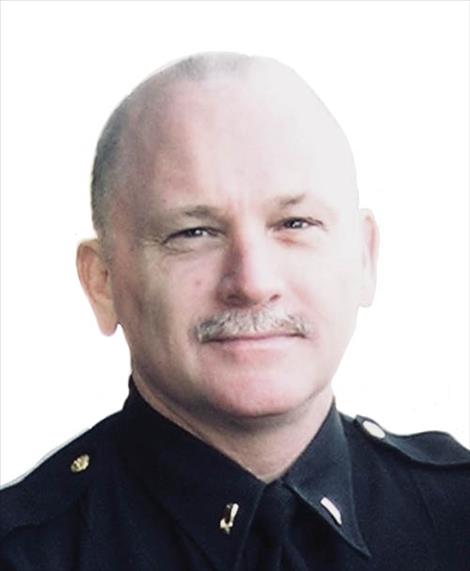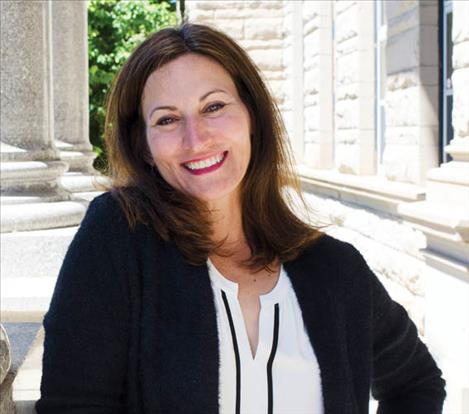Two candidates in running for Polson Ward 2 commission seat
Hey savvy news reader! Thanks for choosing local.
You are now reading
1 of 3 free articles.
POLSON — Two candidates are vying to fill a vacant seat in Polson’s Ward 2, an expansive district that includes Mission Bay, and residential neighborhoods bordered by 5th Street E. and the area just north of Hillcrest Drive.
David Coffman
Background & Education: Grew up in Sacramento, earned a bachelor’s degree in Intelligence Studies from the American Military University, and served in the U.S. Marine Corps for 12 years; retired 10 years ago and moved to Polson in 2016 with wife Barbara; the couple has two adult children
Employment & Community Service: Nearly 30 years in law enforcement, including supervisory and management assignments with the Sacramento County Sheriff’s Dept., which twice awarded him a Bronze Star for bravery; has served as a Lake County election judge, a Range Safety Officer with the Polson Shooters Assoc., and on three Mission Bay Home Owners Assoc. committees
David Coffman is making his third run at a position on the Polson City Commission after applying twice to fill the Ward 2 seat initially vacated by Bob Martin and then by Patricia Corrigan-Ekness. He also ran for Lake County Sheriff in 2018.
“Public service has always been major part of my life,” says the retired police officer. “I was blessed with a wonderful career and a number of different experiences that could be useful in a city such as Polson.”
He and his wife moved to Mission Bay from Sacramento for the same reasons many newcomers are drawn to the state – its slower pace, natural beauty, recreational opportunities “and mostly like-minded conservative people, who are tax-paying, law-abiding, god-fearing.”
Coffman sees challenges ahead for the community as it deals with an older demographic, and fewer younger families. He points to a 20-acre tract south of Mission Bay being developed as an assisted living complex and the proliferation of healthcare services as indications “we are an aging community. We either need to build upon that or start expanding and bringing younger people in.”
His strategies include enticing new industries and expanding healthcare services. “You either have to grow the pie or you just die.”
While he acknowledges that lack of affordable housing contributes to the current labor shortage, he’s not in favor of government subsidized housing “because of the demands it puts on our first responders.” He’s optimistic that the cost of building could stabilize or begin to drop, even as demand remains high.
He remains concerned about the water shortage that forced residents to curtail water usage during the hottest summer months. “Do we have the storage capacity here we need?”
Coffman says he pays more for water and sewer living on a lake than he did in California, and suggests large rate hikes could have been averted if the new sewer treatment facility was built when the issue was first identified more than a decade ago.
“People don’t want to spend money to prevent problems so you kick that can down the road,” he says. Elected officials need to be “proactive, not reactive.”
Coffman is also concerned about the introduction of recreational marijuana. “How many weed shops do you want to have? When we make it legal what are the long-term consequences to the schools, to the hospitals, to the neighborhoods?”
A community needs survey could help the city prioritize demands for services, such as roads, housing and public safety. Such an online assessment “could be easily done, and most people that are going to take the time to answer are people who are already engaged, and they’re the taxpayers as well.”
Laura Dever
Background & Education: Born and raised in Cleveland, earned bachelor’s in English and Political Science from Ohio State University; settled in Missoula for 20-plus years with husband, Highway Patrolman Chad Dever, moved to Great Falls for five years and to Polson in 2020; the couple has a son who recently graduated from Montana State University
Employment & Community Service: Licensed massage therapist has worked independently and for businesses, including the Women’s Club in Missoula; also employed in sales and marketing for Mountain Press and as community relations manager for Barnes and Noble. Currently serving on the Montana Board of Behavioral Health and involved with local PEO chapter; has volunteered as a CASA guardian and with Eagle Mount, Special Olympics, and a variety of other organizations.
Laura Dever was appointed by the Polson commission in June to fill a Ward 2 vacancy and says she’s “learned a ton” in the past four months about the workings of municipal government. She’s met with city staff, attended meetings of the city’s advisory boards, and been attentive to the workings of county and tribal government.
“I think it’s smart to be cooperative with the Tribes and county, for all of our best interests and success.”
She’s been attending meetings of the city’s Marijuana Task Force, which is advising the commission on how to address the advent of recreational marijuana on Jan. 1.
She’s concerned about how to manage the uptick in growth and the shortage of affordable housing and recently traveled to Boise with the city planner, a fellow commissioner and the building inspector to take a look at manufactured homes.
“I’ve been interested in off-site building alternatives for a long time,” she says. “It’s cheaper, and you can build better structures faster that are LEED certified. It could be a good option for a lot of people in Polson.”
Although the city doesn’t own housing, she hopes it can encourage development with tax credits and other incentives. She points out that the dearth of affordable housing compounds the workforce shortage afflicting employers. “If we want to encourage business growth, people need a base of employees to work with and that has been problematic.”
The challenge for city government is to make Polson “hospitable for new businesses, current businesses, new residents and longtime citizens,” she says. “I think we can all work together to keep this area healthy and really invest in some smart growth.”
Dever says she and her husband Chad, captain of Highway Patrol District 106, which encompasses Lake, Flathead and Lincoln counties, could have lived anywhere in the area, but chose Polson.
“We looked around for a long time before we settled here,” she says. “It was not by chance; it was by choice.”
After four moves in the past four years, she is more than ready to settle down, and roll up her sleeves. “I don’t want to just sit in meetings. I like to be active, be involved,” she says.
She encourages constituents to stay in touch. “I’m always happy to visit with anybody in Polson about their questions, concerns, ideas,” she says, noting her email is posted on the city’s website. “It’s more important to listen than to talk and to convey those needs to the commission. That’s what we’re here for.”

















